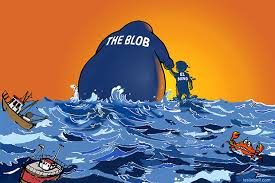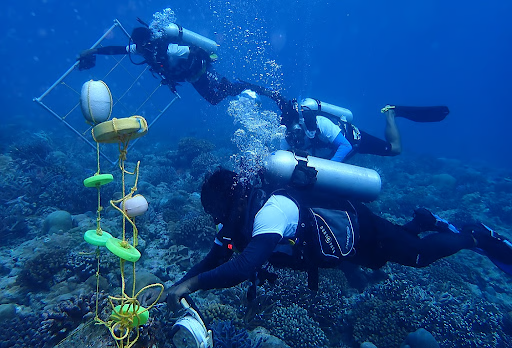Description

Disclaimer: Copyright infringement is not intended.
Context:
- An analysis led by scientists at the Indian Institute of Tropical Meteorology (ITM), Pune highlights increased instances of marine heatwaves in the Indian Ocean.
Details of the study
- From 1950 to 2020, the Indian Ocean became warmer by 1.2 degrees Celsius, and climate models expect it to heat a further 1.7 degrees Celsius to 3.8 degrees Celsius from 2020 to 2100.
- Marine waves are expected to increase tenfold from the current average of 20 days per year to 220-250 days per year.
- The tropical Indian Ocean will likely be in a "near-permanent heatwave state" and accelerate coral bleaching, sea-grass destruction, and loss of kelp forests, affecting the fisheries sector adversely.
- The heating of the ocean was not merely restricted to the surface but went deeper and increased the overall "heat content" of the ocean.
- The heat content of the Indian Ocean, when measured from the surface to a depth of 2,000 metres, is currently increasing at the rate of 4.5 zetta-joules per decade, and is predicted to increase at a rate of 16-22 zet-ta-joules per decade in the future.
- The future increase in heat content is comparable to adding the energy equivalent of one Hiroshima atomic bomb detonation every second, all day, every day, for a decade.
- Rising heat content contributes to sea-level rise also. Heat causes the volume of water to increase, called the thermal expansion of water, and this is responsible for more than half of the sea-level rise in the Indian Ocean - larger than the changes arising from glaciers and sea ice melting.
Note: Joule is a unit of energy and one zetta-joule is equal to one billion-tril-lion joules (10^21).

Articles on Marine heatwaves:
https://www.iasgyan.in/daily-current-affairs/marine-heat-waves
https://www.iasgyan.in/daily-current-affairs/marine-heatwaves#:~:text=Marine%20heat%20waves%20(MHWs),weeks%2C%20months%20or%20even%20years.
https://www.iasgyan.in/daily-current-affairs/marine-heat-waves-25
Source:
The Hindu
|
PRACTICE QUESTION
Q) Analyze the projected increase in temperature, frequency of marine waves, and its impacts on coral reefs, sea-grass, and fisheries due to marine heatwaves. Evaluate the significance of rising heat content in terms of sea-level rise and propose mitigation strategies.(250 words)
|











